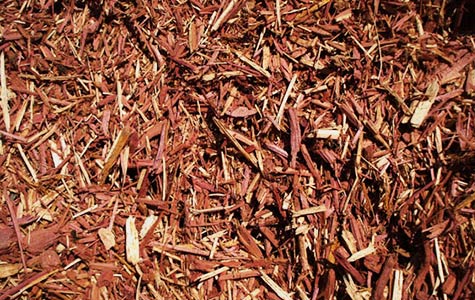In the world of commercial landscaping, mulch plays a pivotal role, often unsung but undeniably essential. From enhancing the visual appeal of a property to supporting plant health, mulch is a versatile and invaluable component in landscape design.
Understanding Mulch and Its Varieties
Mulch refers to a layer of material applied to the surface of soil, serving several key purposes. It comes in various forms, both organic and inorganic. Organic mulches include wood chips, bark, and straw, which decompose over time to enrich the soil. Inorganic options like rubber, stones, or landscape fabric, on the other hand, are more durable and do not break down.
Benefits of Mulch in Commercial Landscaping
Soil Health and Plant Growth: Mulch is not just a decorative layer; it significantly improves soil quality, fostering an environment conducive to healthy plant growth. It helps in maintaining soil structure and nutrient balance.
- Moisture Retention: One of mulch's superpowers is its ability to retain moisture, reducing the need for frequent irrigation, a crucial factor in the maintenance of large commercial landscapes.
- Weed Control: Mulch effectively suppresses weed growth, minimizing maintenance efforts and costs. This is particularly beneficial in commercial settings where large areas require upkeep.
- Temperature Regulation: Mulch acts as an insulator for soil, keeping it cool in summer and warm in winter, thereby protecting plant roots from extreme temperature fluctuations.
- Aesthetic Appeal: With various colors and textures available, mulch can significantly enhance the visual appeal of commercial properties, making landscapes look well-maintained and inviting.
Sustainable Mulching: Environmental Considerations
Mulch plays a significant role in sustainable landscaping. Opting for environmentally friendly mulch, such as those made from recycled or natural, biodegradable materials, can enhance the sustainability of a landscape. Understanding the lifecycle of different mulch materials is essential in making eco-conscious choices.
Common Mistakes in Mulching and How to Avoid Them
Common missteps like overmulching can lead to issues like root rot and pest infestations. Creating "mulch volcanoes" around trees is another practice to avoid, as it can harm tree health. Selecting the right type of mulch for specific plants and landscape areas is crucial for optimal results.
Innovative Uses of Mulch in Commercial Landscaping
Beyond its traditional roles, mulch can be used creatively in landscape design. From crafting aesthetically pleasing patterns to using different colors and textures, mulch can add a unique touch to commercial properties.
Cost Analysis: Mulch as a Cost-Effective Solution
In the long term, mulching is a financially savvy choice for commercial landscapes. While different types of mulch vary in cost and longevity, the overall benefits like reduced watering and maintenance needs contribute to significant cost savings.
Maintenance and Upkeep of Mulched Landscapes
Routine maintenance is essential to keep mulched areas looking fresh. Strategies include periodic replenishment, especially of organic mulches, and general upkeep to maintain the landscape’s neat appearance.
The Unsung Hero of Landscaping
In conclusion, mulch is a multifaceted asset in commercial landscaping. Its array of benefits, from aesthetic enhancement to environmental friendliness, makes it an indispensable tool for landscape designers and property managers. Embracing mulch in commercial landscaping not only elevates the aesthetic quality but also contributes to a healthier, more sustainable environment.








.webp?width=725&name=AdobeStock_462076409%20(1).webp)
![All About Soil Compaction: Causes, Challenges & Solutions [A Guide]](https://www.minickmaterials.com/hs-fs/hubfs/Imported_Blog_Media/plants-2411458_1920-1024x683.jpg?width=725&name=plants-2411458_1920-1024x683.jpg)